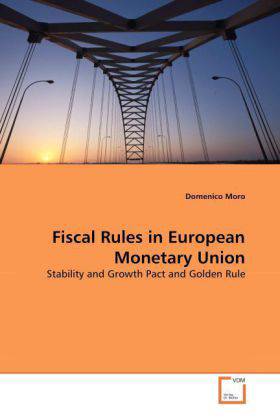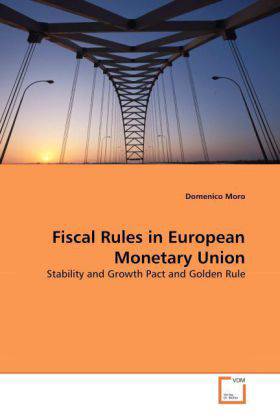
- Afhalen na 1 uur in een winkel met voorraad
- Gratis thuislevering in België vanaf € 30
- Ruim aanbod met 7 miljoen producten
- Afhalen na 1 uur in een winkel met voorraad
- Gratis thuislevering in België vanaf € 30
- Ruim aanbod met 7 miljoen producten
Zoeken
Fiscal Rules in European Monetary Union
Stability and Growth Pact and Golden Rule
Domenico Moro
Paperback | Engels
€ 48,45
+ 96 punten
Omschrijving
The Maastricht Treaty and the Stability and Growth Pact attempt to define the conditions of sound public finances which are necessary conditions for the success of European Monetary Union, setting quantitative limits to deficit and debt in EU countries. The centralisation of monetary policy and the impossibility of using exchange rates as a policy instrument make fiscal policy all the more important. Indeed, fiscal policy together with structural policy becomes the main instrument of national economic policy. This book considers, at an analytical level, how the EMU countries can manage their fiscal policy within constraints. Focusing on Stability and Growth Pact and the Golden Rule, the analysis approaches the question from three angles: the ways the budget constraint can also be considered as a solvency constraint, the desirability of fiscal constraints in a monetary union and the effect of such constraints on capital accumulation and public investment.
Specificaties
Betrokkenen
- Auteur(s):
- Uitgeverij:
Inhoud
- Aantal bladzijden:
- 80
- Taal:
- Engels
Eigenschappen
- Productcode (EAN):
- 9783639226850
- Uitvoering:
- Paperback
- Afmetingen:
- 220

Alleen bij Standaard Boekhandel
+ 96 punten op je klantenkaart van Standaard Boekhandel
Beoordelingen
We publiceren alleen reviews die voldoen aan de voorwaarden voor reviews. Bekijk onze voorwaarden voor reviews.







